Spearline: Taking practical steps to promote gender balance in leadership roles
A diverse staff to meet the diverse needs of their target audience – to Spearline, gender balance in every part of the business, particularly in senior roles, naturally makes sense. But for the Cork-headquartered company working in the field of telecommunication technology, getting good gender balance is much easier said than done.
“In the field we’re in, it’s hard to get a gender balance, particularly with regards to software development,” explains Spearline CEO Kevin Buckley. “But it’s important – we believe that the more diversity a company has, the better it performs – and countless studies have backed this up.
“I think most companies within our sector are aware of the importance of gender balance; we would hear this constantly referenced when on training courses or meetings. But achieving it can be tricky.”
People-focused business
Established in 2003, Spearline has developed a cloud-based platform that proactively monitors critical business telecommunication services, replicating the experience of a client’s customers and callers and allowing them to diagnose, escalate and resolve issues before they become noticeable problems. With clients including Zoom, Mastercard and Global Call Forwarding, Spearline is a problem solver with a diverse customer base – so having a diverse workforce to match is a must.
“I believe that the more diverse your thinking as a company, the better it will be,” says Kevin. “Men and women have slightly different ways of thinking, and I mean that in a positive way. Bringing these together can only improve our thinking as a business. And our users and clients would be both men and women, so I don’t understand why a company wouldn’t try and go for a 50-50 balance. Basically you’re trying to get a diversity of thought within your organisation, whether that’s gender, ethnic or more. A nice way of describing it is that we’re citizens of the world – we’re looking for a broad understanding of the world, and that is down to diversity.”
Practical steps
With teams based in Skibbereen, Waterford, Bucharest in Romania and Ahmedabad in India, Spearline is working hard to achieve a good gender balance in every part of its business. “We’re currently at 31.6% but by 2030, we’ll be setting a goal for ourselves to meet 40%,” says Kevin. “The software development side, which is about a third of our team, is very male oriented, but the other parts of the company tend to be less so – we would be pushing 40% in most of the other areas.
“We constantly look at the issue when hiring, especially in the last few years as we have matured as a company.” says Kevin
“Entry level positions for software development are dominated by men, but when hiring, we strive to identify people with strong leadership skills and support them as they progress their career with us. For instance, we interviewed one prospective candidate who was self-taught and had huge ambition and potential. She is now head of the QA team. We believe that this approach helps out gender balance policy in every area of our business – and in terms of leadership roles both our Chief Commercial Officer and our Chief People and Culture Officer (CPCO) are women.”
To attract more women into leadership roles, the company has put in a number of benefits to suit both women and men who are juggling work and family. “Two years ago, we brought in maternity, paternity and adoptive leave, and we’ve just introduced a hybrid model of working, which is two days in the office and three days at home. We also have flexible working hours, to accommodate school runs, and we offer career development opportunities through subsidised study. Our aim is to keep pushing the whole time, to create a workplace that is inclusive and diverse.”
Lorraine McCarthy, CPCO, adds, “I think it’s definitely working. We have a lot more women coming through in India, and that’s a growing team, we have 45 there now. Our country lead in India is female; we made her head when she came back from maternity leave, and to make someone head just after returning from maternity leave would be virtually unheard of in India. But she was the right person for the job, it’s as simple as that.”
Visibility of women in leadership roles also supports another important strategy in promoting gender balance which is role modelling. “Yes, we have 40% women in our Indian team now, which absolutely proves the point,” says Kevin.
Leading the way
Spearline is one of the progressive businesses that have seen the business benefits of gender balance in management teams, and have been working hard to attract more women into every aspect of their business. This strategy is aligned to The Level Project, a campaign by Enterprise Ireland to increase the number of women in senior management and leadership positions in Irish companies. This was a key aim highlighted in the 2020 Action Plan for Women in Business.
“I do see a difference in the world in terms of promoting gender balance; society has moved on and there are a lot of people doing a lot of good things in making that change.” says Kevin
Enterprise Ireland has great weight and clout, and by getting behind gender balance, it’s really putting a spotlight on the issue – we’re constantly bombarded by information, but when it comes from a heavyweight like Enterprise Ireland, people do listen.”





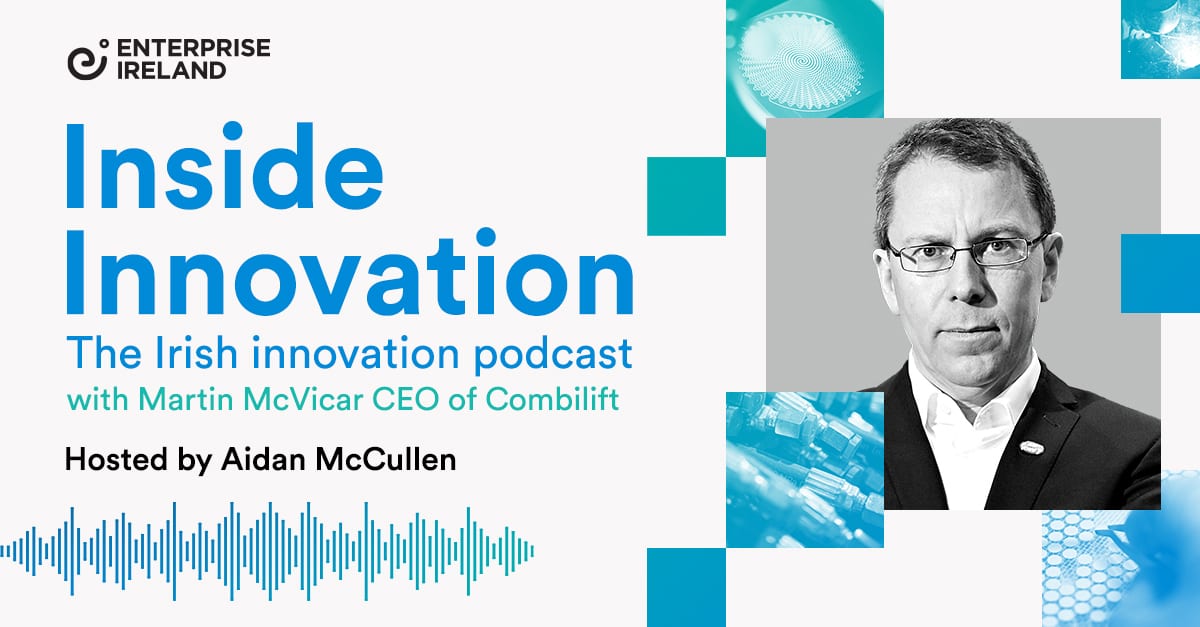



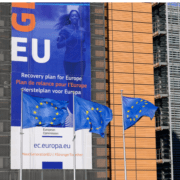
 “This is a push for a radical transformation of consumption and production to prepare European economies to withstand future crises in a better way. We’re speaking in Brussels about a paradigm shift. This is basically changing the way we function completely.”
“This is a push for a radical transformation of consumption and production to prepare European economies to withstand future crises in a better way. We’re speaking in Brussels about a paradigm shift. This is basically changing the way we function completely.” “SMEs are not always directly affected by macroeconomics,” says Anne Lanigan, regional director, Eurozone at Enterprise Ireland, “but when that volume of money is going into it, especially to drive the green and digital agenda, it has to have an impact on what is happening at a business level.”
“SMEs are not always directly affected by macroeconomics,” says Anne Lanigan, regional director, Eurozone at Enterprise Ireland, “but when that volume of money is going into it, especially to drive the green and digital agenda, it has to have an impact on what is happening at a business level.”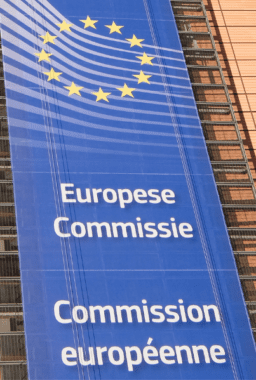 The overall fund is focused on six pillars, with the green transition and digital transformation being top of the list. The
The overall fund is focused on six pillars, with the green transition and digital transformation being top of the list. The 
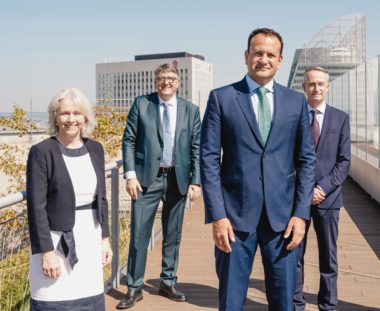 “Since we implemented our Eurozone strategy in 2017, we’ve seen a 33% jump in exports from Ireland to the Eurozone,” she says. “Even in 2020, when some sectors were hit very hard, we still saw a 1.6% growth in exports, which is significant considering economies across Europe shrunk.
“Since we implemented our Eurozone strategy in 2017, we’ve seen a 33% jump in exports from Ireland to the Eurozone,” she says. “Even in 2020, when some sectors were hit very hard, we still saw a 1.6% growth in exports, which is significant considering economies across Europe shrunk.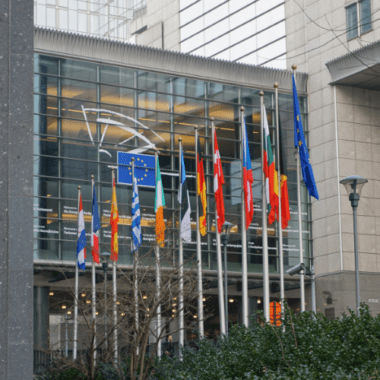 The markets of interest to individual companies will depend on the nature of the products and services they offer. Those selling into the tourism and hospitality sector, for example, will find more extensive opportunities in Southern Europe, where governments are placing more emphasis on this sector.
The markets of interest to individual companies will depend on the nature of the products and services they offer. Those selling into the tourism and hospitality sector, for example, will find more extensive opportunities in Southern Europe, where governments are placing more emphasis on this sector.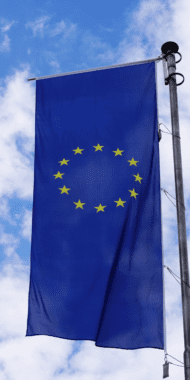



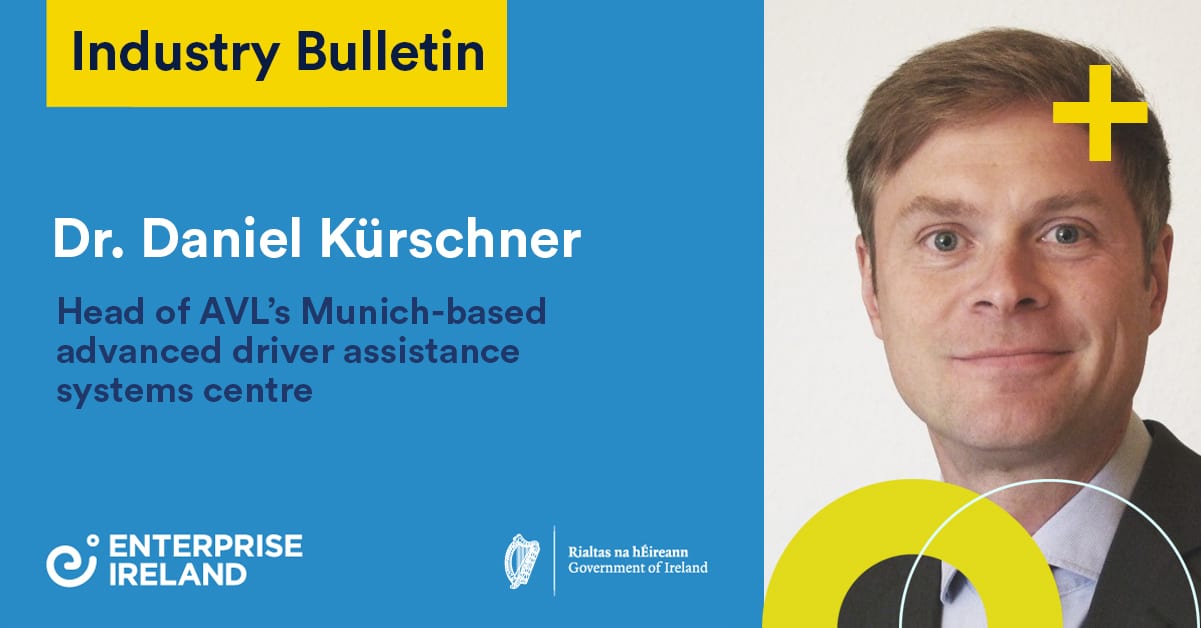 AVL is the world’s largest independent company for the development, simulation and testing of powertrain systems for passenger cars and commercial and industrial vehicles and is directly exposed to the deepest and most rapid business downturn in the history of the automotive industry. Dr. Daniel Kürschner, Head of the Company’s Munich-based advanced driver assistance systems (ADAS) centre, remains optimistic, however.
AVL is the world’s largest independent company for the development, simulation and testing of powertrain systems for passenger cars and commercial and industrial vehicles and is directly exposed to the deepest and most rapid business downturn in the history of the automotive industry. Dr. Daniel Kürschner, Head of the Company’s Munich-based advanced driver assistance systems (ADAS) centre, remains optimistic, however.





